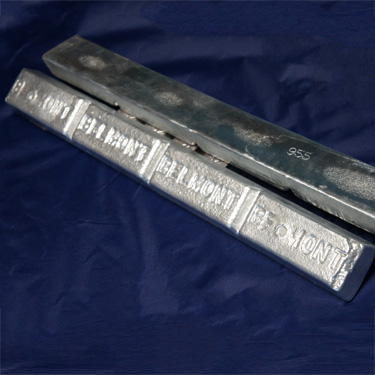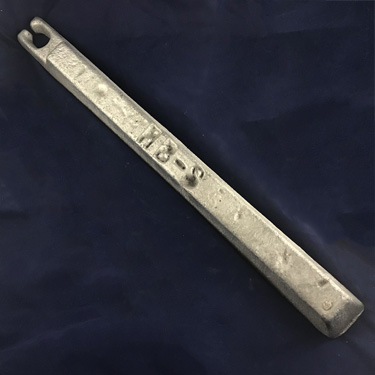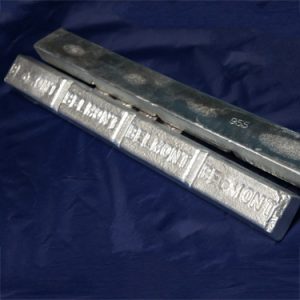For jewelry casting, manufacturers have a wide range of base metals and alloys to select from for their pieces. Most common metals that consumers are familiar with are gold, silver, platinum, and sterling silver. Yet there are many other types of alloys that may be used, including tin and zinc. When determining which alloy to…
RELATED POSTS

High Grade Zinc: Manufacturing Benefits for Granular and Shot Forms
Zinc is a silvery white metal used throughout industrial manufacturing. This metal us used to create die casts that help create parts and components for a wide range of industries such as automotive, aerospace, and other industries. Another form or zinc, called zinc oxide, may be placed into paints, inks, plastics, pharmaceuticals, and even batteries. …

Understanding the Various Metals Used for Plating
Are you considering plating metals? The process of metal plating is performed to improve corrosion resistance, add aesthetic appeal, enhance the metal’s hardness, reduce friction in moving pieces, increase or decrease conductivity and to improve solderability. The most common plating metals include brass, bronze, cadmium, nickel and tin, and here at Belmont Metals, we sell…

A Brief Guide to Understanding the Electroplating Process
Electroplating refers to a process used to bind a layer of one metal over the surface of another one. Electroplating changes the properties of an item’s surface, providing protection, improving its appearance, or very often, both. Besides creating a protective coating for a metal item, manufacturers also might use electroplating to increase its thickness or…

Popular Applications and Uses of Zinc Alloys
Many base metals provide specific mechanical, electrical, and thermal characteristics on their own. However, their physical properties may make them unsuitable for certain applications. With the addition of other metals, the base metals can enhance their properties where they can be made more durable, ductile, stronger, or less brittle. Zinc is a common additive to…

The benefits of adding titanium to zinc alloys
Zinc in used in many applications from die casting to electroplating. However, zinc, by itself, is brittle and weak. For that reason, it’s often alloyed with other metals, including titanium. When zinc is alloyed with titanium, it becomes lightweight and exceptionally strong. Here at Belmont Metals, we offer zinc titanium alloys for manufacturing processes. Properties…

The benefits of adding aluminum to zinc alloys
Here at Belmont Metals, we offer zinc alloys, which are great for use in soldering applications, die casting and for use as a corrosion-resistant coating. Zinc is often alloyed with other types of metal in order to improve its strength and heat resistance. The Properties of Pure Forms of Zinc Pure forms of zinc are…

Electroplating Advantages: Using Different Coating Products to Provide Enhanced Benefits
You would be surprised just how many items in our lives have electroplating. From your car when driving to work to the jewelry worn on special occasions, commercial manufacturing processes rely on this process to protect metals, as well as plastics, by coating them with an exterior layer of metal. While the most well-known reason…

What is electroplating?
Electroplating refers to a process that adds a surface layer of metal to another type of metal. It’s typically used to prevent corrosion and rust and to extend the useful life of the metal underneath the electroplated metal. Of course, it’s also used to make gold and silver plated jewelry and knickknacks and to give…

Electroplating with Tin Anodes: Uses and Examples
Machinery used in manufacturing applications can consist of a range of metals and alloys that provide strength, electrical and thermal conductivity, durability, workability and other characteristics. However, the metal part itself could be detrimentally impacted by the environment and the working application itself. In other instances, the metal part could create problems if it comes…

Antimony: Possessing Durability and Versatility When Alloyed with Other Metals
Semiconductors, machine bearings, and utensils are all made from varying amounts of metal alloys. Yet these items also possess one common factor: antimony. Antimony is a semi-metal element that comes in both a powdered form as well as a hard and brittle metal. Possessing a silvery, blush white appearance, this element is highly desired when…



